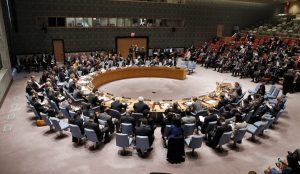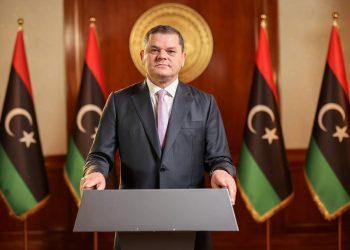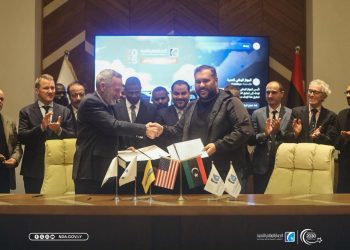By Libya Herald reporters.

Tunis, 1 July 2017:
It is now possible, even likely, that foreign warships will soon be intercepting vessels smuggling subsidised Libyan fuel. This racket has not only become a major drain on the country’s finances, but has also produced extensive fuel shortages as fuel trucks are diverted to smugglers waiting on the coast from where the product is taken in the main to Malta, Italy and Turkey.
In its latest Libya resolution, the UN Security Council (UNSC) has extended its interdiction of illegal crude oil shipments to include the current rampant smuggling of fuel products, much of it imported and thanks to heavy subsidies, sold at a loss in Libya.
The UK-sponsored 15-month renewal of the 2011 arms embargo, assets freeze and travel bans on selected individuals, as well as the unauthorised sale of oil also includes what appears to be a nudge to the Presidency Council (PC) to organise itself better.
The UNSC welcomed the Government of National Accord’s (GNA) setting up of a “focal point” to keep in touch with the UN panel of experts that monitors Libya. However, it urged the GNA to provide regular updates on any illegal oil exports. That it felt the need to stress this point suggests that the UN panel has not been receiving the information it wants in a timely manner.
The resolution also demonstrates a challenge facing the Serraj government. This is that, as and when it identifies what it believes to be an illegal oil shipment, it is required first to contact the country where the vessel is flagged or registered before passing on its concerns to the UN panel. Though several coastal tankers, including three Russian vessels, most recently this March have been arrested on suspicion of fuel smuggling, the local gangs are also using small vessels which fly no flag, of convenience or otherwise.
The GNA’s “focal point” also needs to liaise closely over any weaponry requests which the UN Panel would need to approve within the wider arms embargo. But the resolution makes the point that such armaments only would be for the security forces to use against the so-called IS and groups that have pledged allegiance to it, Ansar Al-Sharia and other bands associated with Al-Qaeda operating in Libya.
Very probably in response to last week’s ambush of an UNSMIL convoy near Zawia, the UNSC also decided that it would sanction those involved in attacks against UN personnel.
The resolution also asks the GNA to tell to the UN panel as soon as it exercises sole and effective control over the National Oil Corporation (NOC), the Central Bank and the Libyan Investment Authority. The degree of control over the NOC is currently in dispute, with the PC seeking to take from the state oil company key contractual powers. This is a move which has been strongly resisted by NOC and its boss, Mustafa Sanalla who this week oversaw production edging past the average of one million barrels a day for the first time in four years.









